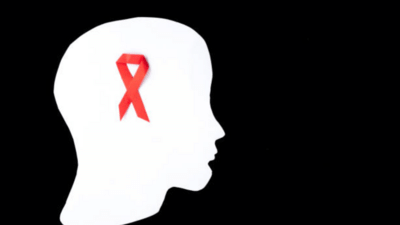
Cancer is often surrounded by myths and taboos that create fear and misinformation. Some believe cancer is always fatal, but many types are treatable with early detection. Social stigma also prevents open discussions, leading to delayed diagnosis. Spreading awareness and scientific facts helps combat these misconceptions, encouraging early screenings, proper treatment, and better support for patients and survivors. Knowledge empowers, myths harm!
1. If your family has no history of cancer, you cannot get it
It is a common belief that the risk of developing cancer is possible only in individuals who have a history of cancer within their family. Although having a family history may increase the chances, most cases of cancer occur due to mutations that develop throughout a person's lifetime. The causes for such mutations are not only inherited but also result from environmental factors, such as smoking, pollution, or even age. Actually, most people suffering from cancer have no known history of cancer within their families.
2. Cancer is infectious/ contagiousThere are many people who are under a misconception that cancer is infectious, that it can be contagious. Cancer is neither contagious nor passed from one person to the other. Though certain viruses and bacteria are said to increase the chances of resulting in cancer; for example, human papillomavirus is linked with cancer, and so is the case with Helicobacter pylori, also known as H. pylori. These infections may have a lot to do with the increase in risk for developing cancer, but the disease itself cannot be contagious..
3. If the family history says you will eventually get cancer then you will.
Having a history of cancer among relatives does not necessarily mean the individual will come down with cancer. Although such factors can have a predisposition, hereditary cancers account for a very minimal percentage of overall cases. So, lifestyle choice, environmental exposures, and scheduled screenings are significantly responsible for cutting down the potential of developing this disease, especially in those whose family history already indicates cancer.
4. It can be healed by positive thoughts
A constructive attitude will enhance the quality of life but will not cure cancer. Evidence from scientific studies shows that while emotional well-being does play a role, the treatment of cancer also requires surgical intervention, chemotherapy, radiation, and/or other targeted therapies. Therefore, while maintaining a hopeful attitude is likely to be beneficial for one's mental health, it should never be considered a replacement for medical care.
6. Elderly patients are not suitable for cancer treatment .
It is actually a common saying in our society that older people cannot be treated for cancer. Age cannot be the only cause for not initiating treatment. Most of the older patients show a good response to therapy like chemotherapy, radiation, or surgery. We discuss a lot about the general condition, organ functions, and kind of cancer before a medical therapeutic procedure plan.
These myths can cause unnecessary anxiety and will interfere with sound prevention and treatment decisions. Good information, of course, is required, and advice from qualified health professionals should be sought.
Dr. Vikas Goswami- Director - Medical Oncology (Head & Neck, Gastrointestinal, Urology, Musculoskeletal, Breast & Gynecology), Max Super Speciality Hospital Noida
 Cancer is often surrounded by myths and taboos that create fear and misinformation. Some believe cancer is always fatal, but many types are treatable with early detection. Social stigma also prevents open discussions, leading to delayed diagnosis. Spreading awareness and scientific facts helps combat these misconceptions, encouraging early screenings, proper treatment, and better support for patients and survivors. Knowledge empowers, myths harm!
Cancer is often surrounded by myths and taboos that create fear and misinformation. Some believe cancer is always fatal, but many types are treatable with early detection. Social stigma also prevents open discussions, leading to delayed diagnosis. Spreading awareness and scientific facts helps combat these misconceptions, encouraging early screenings, proper treatment, and better support for patients and survivors. Knowledge empowers, myths harm!